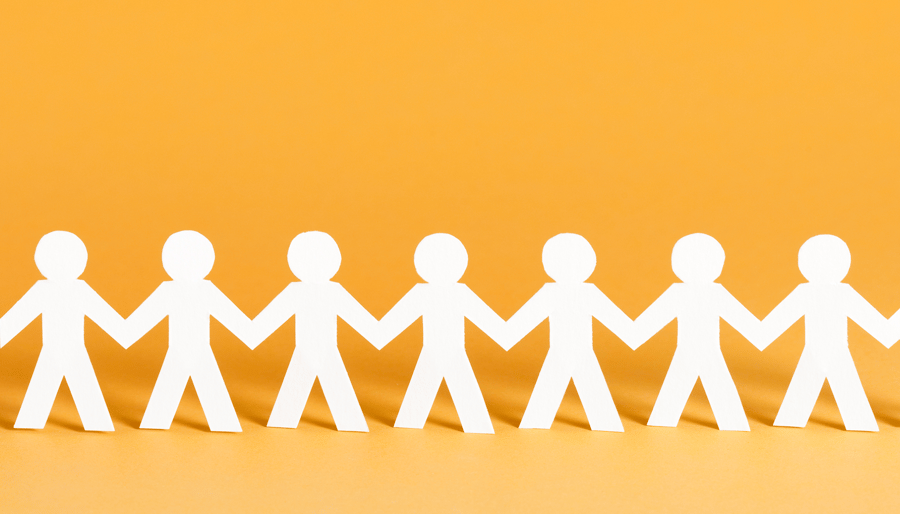Gone are the days when you’d have to leave your office for beer, Ping-Pong tables, and snacks. These days, workers are often lured by employers offering enticing new perks.
Bring your dog to work? You bet.
Beer on tap? Duh!
In-office gym? Of course!
As more and more outside opportunities for talented employees arise, turnover is at an all-time high. Today, employers will do almost anything they can to attract the best talent and keep employees happy. But are perks losing their luster? What means the most to the happiest employees?
According to the Bureau of Labor Statistics, employee benefits (health care, gym memberships, etc.) cost a company $11.60 per employee per hour. If you have a company of 500 employees who work roughly 40 hours a week for 50 weeks out of the year, that means you’re spending close to $12 million on benefits annually.
If that much money is spent on benefits and perks, then employees must be happy, right? In part 2 of our Happiness Index Survey, we asked U.S. employees how various types of compensation impact their happiness at work. Do employees really want more ping pong tables? Or are they saying, “Show me the money!”

Compensation rules…
No surprise here: Overall, people rank compensation as the most important factor in their workplace happiness, followed by flexible hours and meaningful work. Management and leadership are ranked fourth — indicating that people would rather work for companies where you can work from home than have a good manager.

However, when we looked at what impacts happiness for the happiest workers, “doing meaningful work” came out on top, followed by “flexible hours.” Could this mean that true workplace happiness isn’t found inside a wallet?
When comparing men and women, happiness factors vary slightly. Men rank management and flexible hours above compensation, whereas women rank compensation and doing meaningful work above flexible hours.

This could be due to the frustration of women earning 80 cents for every dollar their male counterparts earn, which results in $513 billion in lost wages yearly. Changing this perception by creating a culture of equality and inclusivity will not only help diversify the office, but improve overall happiness across your organization.
But money can be dethroned by happiness
It’s true when they say, “Money can’t buy happiness” ... or at least not at work. Almost 60% of people said they have taken a pay cut to accept a job that made them happier.

Those who report they took a pay cut for a position that made them happier are 63% more likely to say they are “mostly happy” or “elated” in their current position. This again suggests that although compensation plays an important role, people ultimately want to work for something they believe in. This further confirms the importance of a compelling company mission and vision and the critical role they play in fostering employee happiness.

Prioritizing happiness pays off for companies, too. Happier employees are 38% more likely than unhappy employees to say they’re “very productive” on a daily basis. In other words, invest in your employees’ happiness, and they’ll invest in your success!
Stop blaming managers for unhappy employees
You’ve probably heard the saying, “People don’t leave their jobs, they leave their managers.” But our data suggests this may no longer be the case. In fact, unhappy employees rank “management/leadership” as the factor that least impacts their happiness.

The truth behind perks
Work events reign supreme when it comes to the most popular workplace perks for men. Only 15% of men said they would rather have a bump in their compensation.
On the other hand, women would rather see those perks reflected in their paycheck or time off. This suggests that a healthy work-life balance and closing the pay gap mean more to women than perks.
It’s important to note that both men and women value more or unlimited paid time off. Laundry facilities and 24-hr cafeterias were once offered as “perks” only to find they kept employees in the office longer. Today, the best perks are often not offered in the office, but as opportunities to rest and recharge away from the office.

Companies evolve — perks should too
It’s time for companies to face the facts: traditional, in-office perks are losing their appeal. These days, top talent can hop from job to job, so it’s critical for companies to invest in their employees’ happiness.
Employees are seeking a career that fulfills them, pays well, and gives them ample time off to recharge. Impressive perks may attract the best talent, but investing in their happiness will keep them there.
Click here to download the full report!








